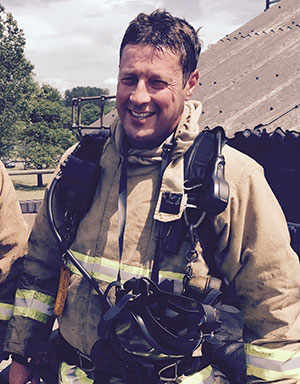I appreciate that investigating fire officers are not police officers, and that the investigation of potential criminal offences is not the reason why people join the fire service.
Nevertheless, once a role in a fire safety or fire protection Department is accepted, the enforcement of the Fire Safety Order, and the investigation of potential criminal offences is likely to be part of the job at some stage.
I have trained fire officers for over 10 years in the investigation of criminal offences, and part of that training often involves the PACE interview process. One of the biggest training issues that arises, is that investigating fire officers are usually “too nice” during mock interviews. They have a tendency to believe everything that the suspect tells them, or at least they do not wish to challenge the suspect as vigorously as is sometimes needed.
There is also a fear of falling foul of the Police and Criminal Evidence Act requirements when going through the interview process. I always tell fire officers that if they can cover 5 main areas, then they won’t go far wrong.
First of all, they must master the caution and be able to explain its significance. Then (Secondly) they must notify the suspect that they are not under arrest, and (thirdly) can leave at any time. The suspect must also be told that he can (fourthly), consult a solicitor or legal adviser if he/she wishes to do so.
Finally, and significantly, the suspect must be told which offences he or she is suspected of having committed. In this regard, I always train fire officers to put themselves in the suspect’s shoes and imagine how they would like to be treated in a similar situation. (I then usually glibly point out that if they envisage a retirement from the fire service involving fire risk assessing then they may very well experience this situation first hand).
Only joking.
Or maybe not (see below*)
Anyone who is being interviewed about a criminal offence needs to know exactly what they are suspected of having done. Here, it is not sufficient to simply say “an offence under article 32 of the Fire Safety Order, or more specifically, an offence under article 13 or 14. The suspect must be told exactly why they are a suspect, how they have allegedly breached the Order, and how that breach might have placed people at risk of death or serious injury. Failure to do so may lead to the interview being inadmissible.
I have seen many interview transcripts where the suspect asks at the outset what they have done wrong, only to be told “you’ll find out in due course.” Or equally as bad, “at this point this is a fact-finding exercise.” Using a PACE interview to “fact find” is a misuse of an officer’s powers. The suspect should only be interviewed under caution if he is suspected of having committed a criminal offence and for no other reason. Any fact-finding should be done as part of the normal investigation process and not under caution.
As a defence solicitor, if I am not satisfied that I can properly take my clients instructions in relation to an alleged offence, because the offence itself is not been made clear, I will simply advise them to answer “no comment” to each question. No adverse inference can be made by a court if the suspect answers “no comment” because he doesn’t know what offence he is supposed to have committed when he is interviewed.
Once interviewed, the suspect should be told how the matter is likely to proceed, and, if possible, a timescale for when a decision will be made as to whether or not they will be prosecuted.
It is here that there seems to be a wide variation between fire services as to how suspects are treated.
I could provide numerous examples of my clients being interviewed under caution, when it has taken years for them to be told that the matter will not be taken any further. If they have been told at all! I could provide at least 5 examples in the last 4 years of my clients been interviewed under caution, and they are still not aware whether their investigations have been completed.
(Note. * 3 of those 5 suspects are ex fire officers who are now experienced fire risk assessors. They are understandably appalled at how they have been treated.)
How would anyone feel in such a situation, with such serious matters (these offences carry a custodial sentence) hanging over their heads for such a long time. In my view, such conduct is totally unprofessional, unreasonable and diminishes the reputation of the fire service. It is not something the police would do. Suspects are invariably informed on a regular basis how the investigation is proceeding and are given a timescale for when they will know whether or not they will be charged. If no charges are brought they are notified that the matter against them is closed.
Such practices should stop. The requirement to keep suspects informed of the progress of the matters being investigated, and ultimately, be notified once a decision is made that no further action will be taken against them, should be written into the policy and procedures of each fire service, who carry out interviews under caution during the course of an investigation.
Once a decision that no further action is to be taken is made, the suspect should be informed immediately. Surely, that is how anyone would expect to be treated?
If you’d like to find out more about the training courses Warren runs please email wps@blackhurstbudd.co.uk.


